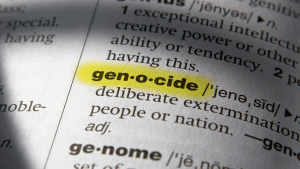Washington County’s Board of Elections allegedly mishandled mail-in ballots during the April primary and withheld information from 259 voters, leaving them unable to correct the errors before Election Day, according to a lawsuit filed by American Civil Liberties Union of Pennsylvania and local advocacy groups Monday.
“The board’s decision to conceal the true status of returned mail ballots with minor but disqualifying errors resulted in needless disenfranchisement,” ACLU-PA legal director Witold Walczak said. “No government official or agency should knowingly disenfranchise its voters.”
The ballots, which were from both Republican and Democratic voters, were not counted in the April primary, according to the lawsuit. Several of the plaintiffs in the lawsuit are voters who say their ballots were rejected for errors on the ballot’s outer “declaration” envelope, such as for writing an “incomplete date,” or failing to sign and date the envelope in the correct place.
Had county officials correctly coded the rejected mail-in ballots into the state’s SURE ballot tracking database, the suit alleges, the voters would have been notified their ballots had been rejected, and could have voted by provisional ballot.
Instead, the suit alleges, Washington County elections officials “determined which mail-in ballots would not be counted, and then implemented a systematic process to keep that information from voters and the public, in many cases affirmatively misleading voters into thinking that their mail-in ballots would be counted.”
Voter Bruce Jacobs, 65, of Venetia, said on a press call Monday that his was one of the mail-in ballots not counted, because he failed to sign and date the outer envelope. Had he known, Jacobs said, he would have voted by provisional ballot.
“I thought I had done everything correctly, but I made a mistake, apparently, I forgot to sign and date the envelope,” Jacobs said. “The Washington County election officials knew I made a mistake. When they received my ballot, they knew they would reject that ballot because of this mistake, but they never notified me, and my vote was not counted. I only found out months later, when I received a call from the Public Interest Law Center.”
In addition to the ACLU-PA and the Public Interest Law Center, the Center for Coalfield Justice and the Washington County branch of the NAACP, along with seven voters, are also plaintiffs in the lawsuit.
Washington County’s solicitor did not reply to a request for comment Monday.
The question of whether mail-in ballots with a missing or incorrect date should be counted has plagued elections in Pennsylvania since its no-excuse absentee voting law took effect in 2020. Known as Act 77, the law made voting by mail a popular option that year largely due to pandemic lockdowns and social distancing measures in effect at the time.
But there have been numerous challenges and disputes since over how to consider ballots with return envelopes that are filled out incorrectly. The requirement of a date on the return envelope has caused particular confusion, and consternation, for voting rights groups and the courts.
In response to a lawsuit filed by the Republican National Committee, in 2022 the Pennsylvania Supreme Court ruled that more than 10,000 mail-in ballots on which voters had not written the date on the outer envelope, or had written the wrong date, should be rejected.
READ: Legislating Inequality: The Christian Confederate Roots of Project 2025
In November 2023, Erie-based U.S. District Judge Susan Paradise Baxter ruled that ballots with incorrect or missing states on the return envelope must be counted if they are received by Election Day. But in March, the U.S. 3rd Circuit Court of Appeals struck down that decision, ruling that ballots not dated on the outer envelope by the voter should not be counted, even if they arrive at a county election office by Election Day.
Senior U.S. Circuit Judge Thomas Ambro noted that the date requirement “serves little apparent purpose.” A provision of the Civil Rights Act of 1964 prohibits officials from denying anyone from voting because of an error or omission “on any record or paper relating to any application, registration, or other act requisite to voting,” unless it is material to the person’s qualification to vote.
But Ambro wrote in the circuit court’s decision that that provision only applies when the state is determining who may vote, Ambro added, “and does not apply to rules, like the date requirement, that govern how a qualified voter must cast his ballot for it to be counted.”
In the Washington County case, county commissioners voted in April, shortly before the primary election, to change the county’s practice for handling mail-in ballots, Walczak said. “And not only would they not tell voters who sent in their ballots with one of these disqualifying mistakes, but they actively concealed the information so that voters wouldn’t and couldn’t find out that their ballot would not count and they had no way of fixing it.”
In other Pennsylvania counties, voters notified about an error on their ballots are able to fix them and preserve their vote, he added.
Walczak also said that since Pennsylvania instituted no-excuse mail-in voting, the ACLU had seen a significant number of people having difficulties completing the process by making technical errors like forgetting the signature date, or putting the wrong date, or forgetting the inner secrecy envelope.
“And one of the things we’ve seen with data collection since then, this mostly and disproportionately affects our senior citizens,” he said. “It’s now running at about 1% of mail ballots. And that may not sound like a lot, but for instance, in the 2022 general election, that was about 22,000 ballots. And if you think about it, a half a percent difference in vote is enough to trigger a mandatory recount.”
READ: 2020’s ‘Fake Elector’ Schemes Will Be Harder to Try in 2024 – But Not Impossible
Indeed, in 2022, Pennsylvania’s GOP U.S. Senate primary between Mehmet Oz and David McCormick had a margin of 1,000 votes, triggering an automatic statewide recount. Oz won the primary but lost to Democrat John Fetterman in the general election.
The Pennsylvania Department of State even redesigned the ballots in November 2023, a few weeks after midterm elections, with revised language about how to fill out and return a mail-in ballot, more easily identifiable secrecy envelopes on a yellow background, and coloring to make it easier to tell the difference between the inner and outer envelopes.
On the new ballots, outer envelopes have a pre-filled “20” at the beginning of the year field, so that voters write the current year — not their birth year, a common error in previous elections. And ballots come with full-page, illustrated instructions to show how to place the envelopes before mailing.
David Gatling, president of the Washington County NAACP, which is a plaintiff in the case, said Monday the county’s actions are a form of voter suppression. “Voting officials who run elections should be doing everything in their power to encourage voting and count ballots, not finding sneaky ways to keep voters from having their ballots count,” he said.
Filed In Washington County’s Court of Common Pleas, the suit asks that the court declare the Board of Elections’ “policy and practice of concealing information and misleading voters about their mail-in ballot status is unconstitutional and invalid.”
In addition, plaintiffs want the court to direct the board “to provide accurate, timely information to voters about mail-in ballots containing disqualifying errors.”
Mimi McKenzie, legal director for the Public Interest Law Center, said Monday that in the coming days, the plaintiffs will ask the court to expedite the case.
Election Day is just over four months away.
Pennsylvania Capital-Star is part of States Newsroom, a network of news bureaus supported by grants and a coalition of donors as a 501c(3) public charity. Follow Pennsylvania Capital-Star on Facebook and Twitter.







